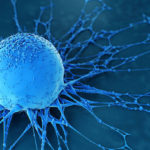Celiac Disease: The transition to the diet that’s right for you
CELIAC DISEASE is an autoimmune disease that damages the small intestine. This damage occurs when the individual ingests foods containing gluten, as he/she has a permanent immunological intolerance to this substance. They cannot eat foods derived from barley, wheat and rye. For example: bread, cookies, grocery products, pasta. Nor can they drink alcoholic beverages such as whiskey, beer or vodka.
It is important that each celiac individual respects a strict diet according to his/her condition. Once the celiac patient is diagnosed with CELIAC DISEASE, he/she must transition from a normal diet to a celiac diet.
Getting used to a new way of eating
If you have CELIAC DISEASE, you should know that you can eat healthily like any other individual. Foods that you cannot eat can be replaced by healthier ones that will satisfy your nutritional and energetic needs.
- CORN: you can use corn flour to bake cakes and pastries. Corn can also be eaten as boiled or roasted cereal.
- QUINOA: this is a very versatile cereal that you can even eat in salads.
- BROWN RICE: it is much healthier and nutritious than white rice.
- POTATO FLOUR: it replaces wheat flour. You can use it to make bread, cookies and pizza.
- AMARANTH SEEDS: you can eat them for breakfast or add them to your salads.
- TAPIOCA: it is a type of flour that serves as a great source of energy. You can prepare sweet and savory dishes.
An Easy Transition
Once you are diagnosed as a celiac patient you know you must learn to eat differently. You have to exclude all gluten-containing foods from your diet. These foods are harmful to you and you must exclude them forever. If there are foods that you like and have gluten you should look for replacements so that you can continue to eat what you like.
This work should be done together with your nutritionist. Together you have to elaborate a healthy and gluten-free food plan. Your new diet should be enjoyable and at the same time beneficial to your health. CELIAC DISEASE does not limit you to a boring diet.
You can adapt to a new diet. In addition, the food industry has created hundreds of gluten-free products so that the celiac patient does not suffer a limited diet. In any case you can consult your nutritionist about these products. It may happen that some labeling does not give an accurate description of the gluten-free food.
Just be minded that this is only a tip of the iceberg as we consider the diet and lifestyle of someone who suffers from Celiac Disease. It is important that the advice of your nutritionist and even a medical doctor is considered as you manage this.











More Stories
The Top 55 Foods for a Lean-Body
6 Great Benefits of Using Oats
Just Your Reminder To Take Some Garlic